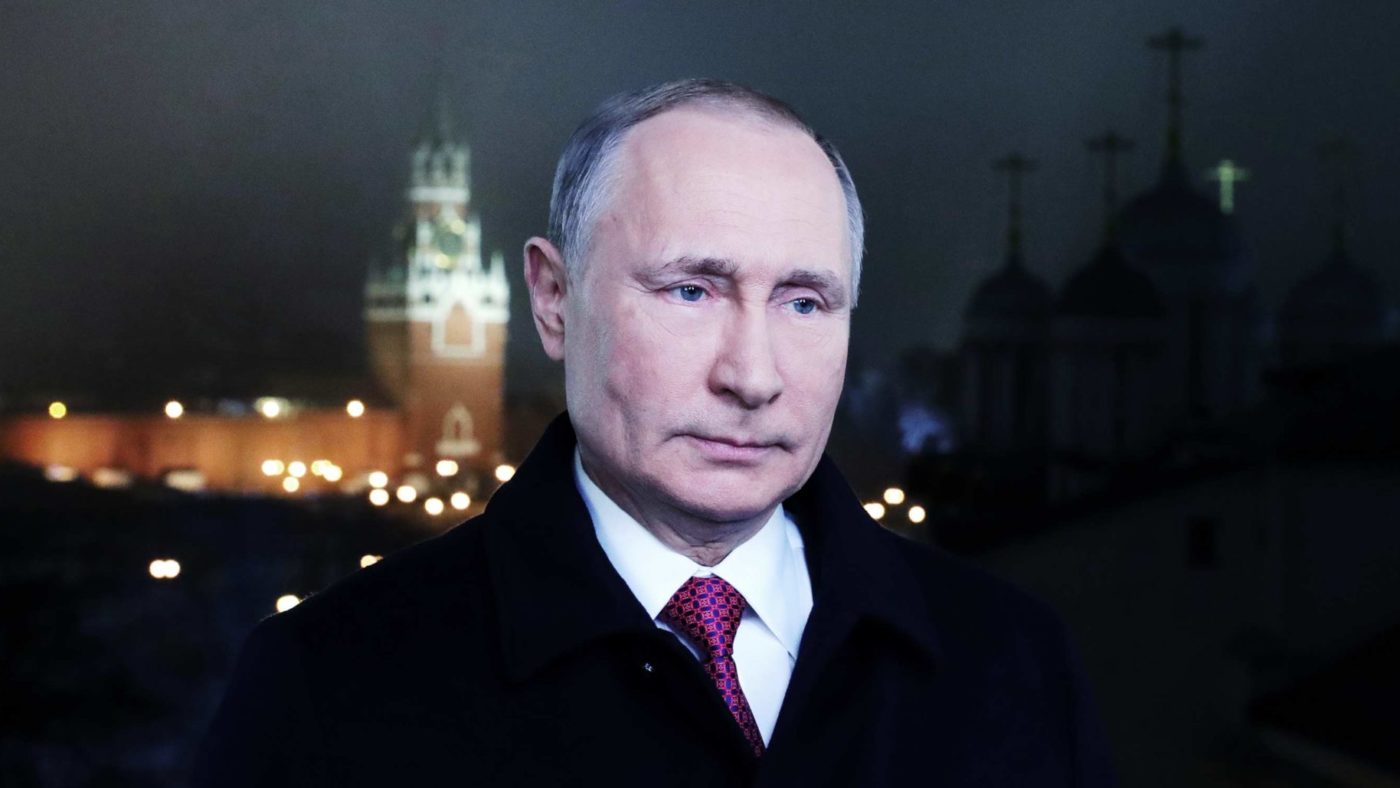In the West, many have presumed that last week’s chaos in Washington was a boon to the world’s despots and autocrats, not least Vladimir Putin. The Speaker of the House of Representatives, Nancy Pelosi, typified that response when she described the storming of the Capitol as “a gift” to the Russian president.
Certainly, you would not have to search Russia’s state-aligned media too exhaustively to find a good deal of sneering at America’s misfortune.
The government newspaper, Rossiiskaya Gazeta, described January 6 as a “watershed” in American history, declaring that “sewing this once united, proud, and self-avowedly ‘exceptional’ nation back together” was now impossible. In the pro-Kremlin tabloid, Komsomol’skaya Pravda, one headline proclaimed: ‘The Colour Revolution Boomerang Returns’, using a term to describe popular uprisings in the post-Soviet space, which Russia perceived as illegitimate US-backed coups.
So far, so predictable. Russian state media, both at home and abroad, have long fixated on trying to exploit Western weaknesses to undermine liberal democracy and, by extension, justify Putin’s autocratic kleptocracy. The insurrection on Capitol Hill fitted perfectly into that long-running anti-Western narrative. Senior politicians were happy to join in too: Leonid Slutsky, the influential head of the Duma’s Foreign Affairs Committee, claimed that the riots proved America could no longer “impose its electoral standards on other countries or claim to be the world’s beacon of democracy”.
However, there’s more to the Kremlin’s reaction than mere schadenfreude. Most Russian news outlets have also taken care to condemn the rioters and emphasise that attempts to violently seize power are not – and never will be – acceptable.
That reflects the unease that images of wanton political violence will have created among Putin and his circle. As an autocratic leader who has long since dispensed with the niceties of competitive elections, freedom of speech, and rule of law, Putin places a high premium on stability and continuity. He has been frequently and openly critical of anything that looks like an outpouring of mass opposition, and his own government has clamped down on dissent ruthlessly.
To someone disinclined to distinguish popular uprisings from unruly coups, the fact such scenes could occur in the heart of the USA, ostensibly the exemplar of Western democracy, is unnerving. After all, if it can happen there, it can happen anywhere, including Moscow.
As such, last week’s events were far from an unequivocal triumph for Putin or the system he has created (the ‘Collective Putin’ as one leading Russian analyst describes it). Rather than embracing the riots, the Russian establishment’s feelings would better be described as: it’s complicated.
In the longer run, the real victory for the Kremlin is not the riots themselves, but Donald Trump’s ban from Twitter and various other social media platforms. It’s striking that most of the Russian opposition have condemned Twitter’s decision, characterising it as a form of censorship that will only embolden regimes, including the Kremlin, that deny their citizens freedom of speech and access to independent media. For many Russian oppositionists, social media is a last refuge, one of the few domains where they can freely engage audiences, having been blacklisted from all the major – and most minor – Russian news outlets.
Building on exactly these arguments, Russian opposition leader Aleksei Navalny outlined in a detailed thread his view that Twitter’s ban is an inconsistent, politicised move to assuage American liberals. He contrasted the decision to ban Trump with the continued Twitter presence of those who frequently threaten to kill him. He might just as well have referenced the Taliban’s various Twitter accounts, or Ayatollah Khamenei’s. For many Russian opposition figures, the way Twitter and other social media networks implemented the ban carries echoes of the proizvol (roughly translated as arbitrariness of rule) that typifies Putin’s Russia, where the powerful can apply the rules selectively and improperly to target their enemies.
With Russian oppositionists naturally sensitive to any form of restriction on speech, this stance has opened up a significant divide between Western liberals and their Russian counterparts. That is regrettable insofar as it distracts and detracts from the much more urgent problems of censorship and attacks on free speech in Russia – including repressive new laws introduced only last month.
So, while Russian politicians and media have made their views known on the storming of Capitol Hill, their pronouncements show that this event does not represent an unproblematic ‘gift’ for the Kremlin but delivers presents and preoccupations alike. If anything, it is Trump’s Twitter ban which may prove more amenable to the Kremlin, who can cynically use it to deflect criticisms of the stifling system they have created – a system in which only they can win, and their opponents can only lose.
Click here to subscribe to our daily briefing – the best pieces from CapX and across the web.
CapX depends on the generosity of its readers. If you value what we do, please consider making a donation.


